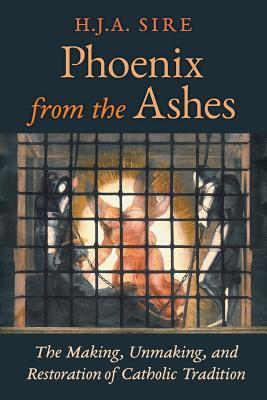"This wide-ranging account of the self-destruction of the Roman Catholic Church and its identification of her only realistic route back to the land of the living simultaneously strikes a blow at history's two most prevalent temptations: rejection or twisting of evidence in the service of an ideological thesis, and honest dedication to intense research on subjects whose ultimate existential value the 'unbiased' historian somehow fears to reveal to his readers. Henry Sire courageously shuts no doors and stifles no evidence, employing a passionate and lively prose that leaves no doubt regarding his sense of the crucial moral and cultural importance of his topic."--JOHN RAO, author of Black Legends and the Light of the World and Removing the Blindfold
"For Catholics feeling lost at sea as a result of the turbulent crisis tossing and flooding the Barque of Peter, Henry Sire's work identifies clear landmarks to steady our gaze. He situates the present disarray within the larger historical context of the Arian heresy and Protestant revolution, and points to the buoys of tradition--liturgical, doctrinal, and philosophical--as sure guides to our way out. Sire distills entire epochs of history, from the first centuries of the Church through the current pontificate, into a highly readable and thought-provoking story. In the course of his tale he exposes the radical progressivism of the Second Vatican Council and its after-effects as well as the tepid conservatism of the Reform of the Reform and the Hermeneutic of Continuity."--BRIAN M. MCCALL, author of To Build the City of God
"Historian H.J.A. Sire has compiled a balanced assessment of the revolution in the Roman Catholic Church. His mastery of the material is complete. The book flows along easily and readers will finish it confident that they have a comprehensive understanding of the last 60 years in the Church."--ROGER MCCAFFREY, President, Roman Catholic Books
"Thanks to Henry Sire's penetrating book, we have some profound answers to nagging questions. How did the West end up so quickly in a post-Christian age, when only decades ago one could still speak of a Christian culture? How did we go from the seemingly healthy Roman Catholic Church of the 1950s to the mass apostasy and grave scandals of recent years? As Sire shows, the antecedents go back quite far, in fact many centuries, but the possibility of healing and regeneration is not as remote as we think."--STEPHEN KLIMCZUK-MASSION, Senior Adviser, Hildebrand Project
H.J.A. SIRE was born in 1949 in Barcelona of a family of French ancestry and was educated in England, at Stonyhurst College and at Exeter College, Oxford, where he took a degree in Modern History. He has written several books on subjects of Catholic history and biography and currently lives in Rome, where he works professionally as a historian.
